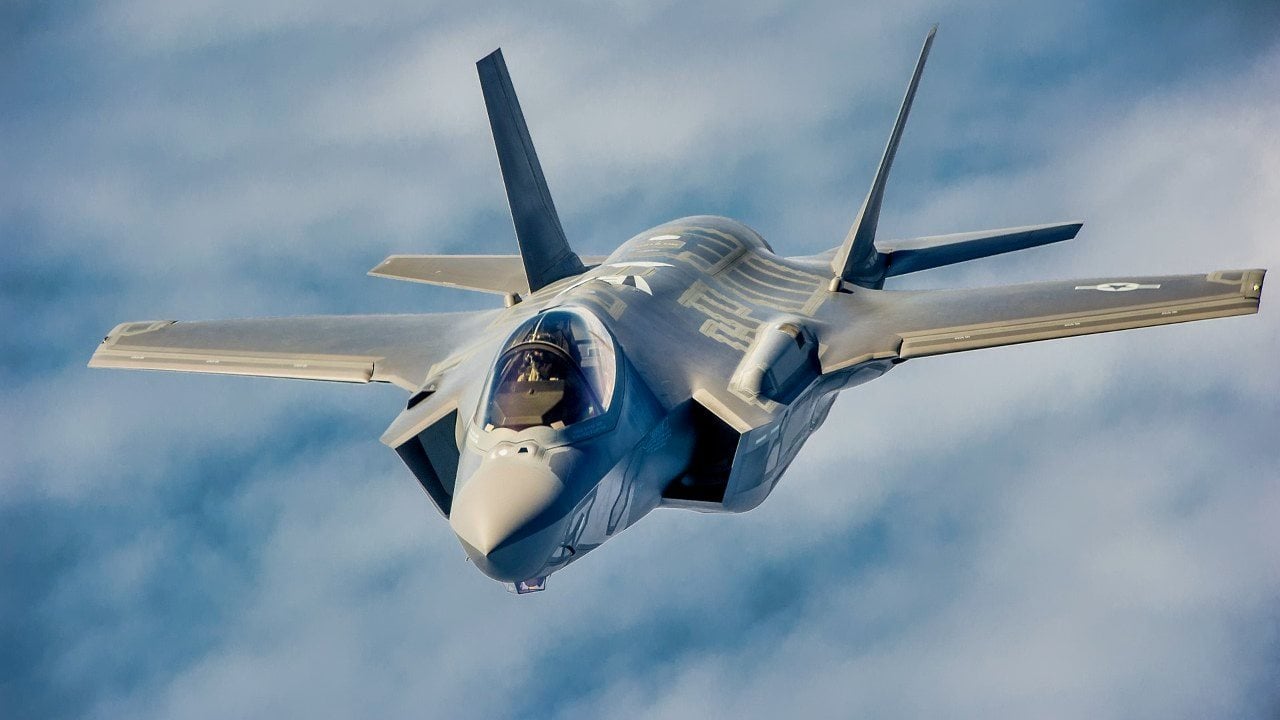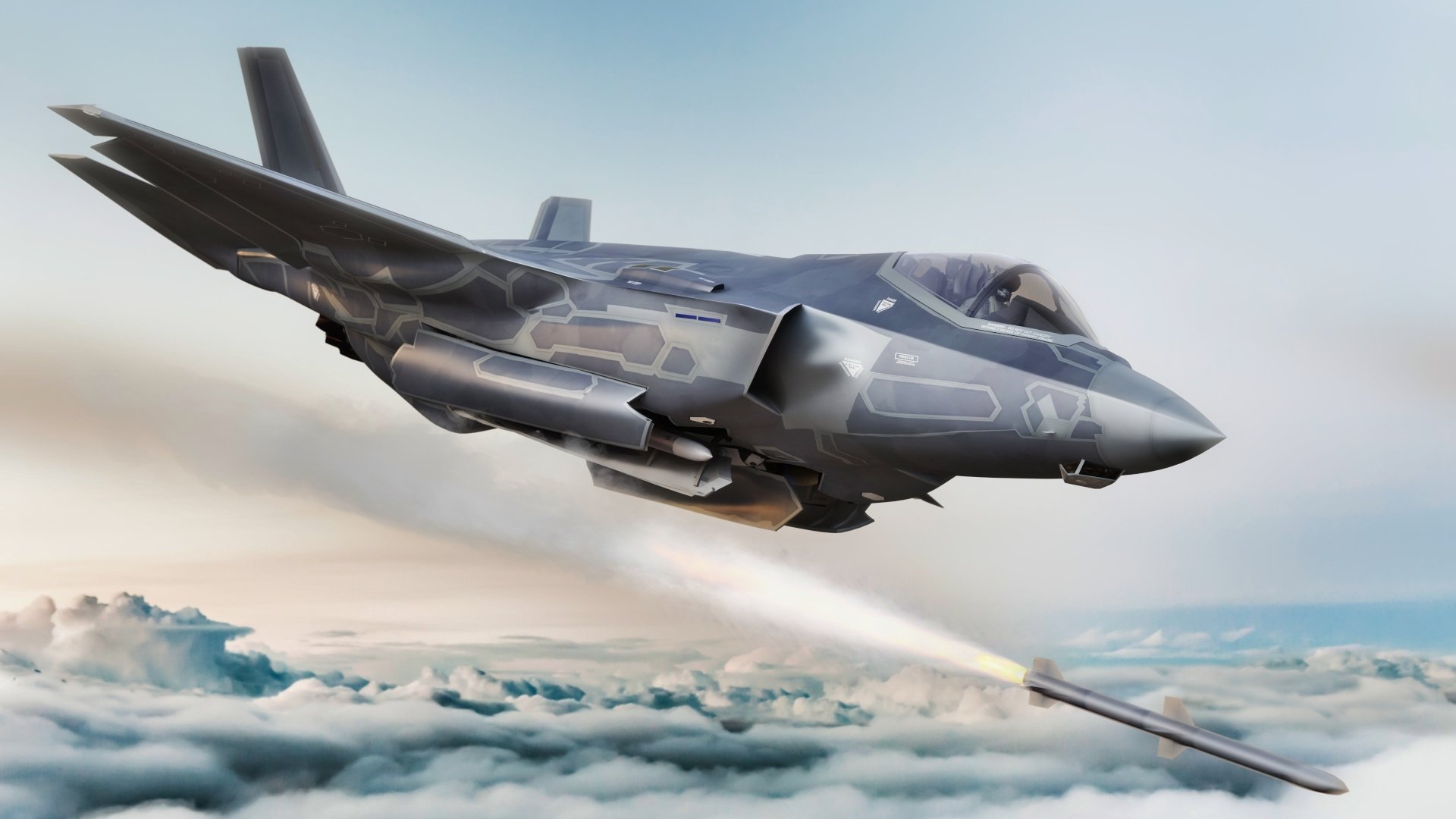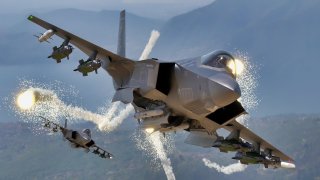Did China Really Buy a Swiss Hotel to Gain F-35 Secrets?
A Chinese family’s purchase of Hotel Rössli, which overlooks Meiringen Air Base in Switzerland where F-35s will soon be stationed, raised U.S. intelligence concerns about potential espionage.
Summary: A Chinese family’s purchase of Hotel Rössli, which overlooks Meiringen Air Base in Switzerland where F-35s will soon be stationed, raised U.S. intelligence concerns about potential espionage.
-The family, who bought the hotel before Switzerland’s F-35 deal, exhibited suspicious behavior according to some expers, such as closing the restaurant during peak times and employing Chinese workers.
-The U.S. demanded increased security, leading to the family’s arrest for hospitality law violations. The Swiss military eventually bought the hotel to mitigate security risks.
China Might Be Obsessed with the F-35 Fighter
There are dozens of reasons to visit Switzerland, from its scenic beauty to its world-renowned food, including its chocolate. The Land of the Alps has become especially popular with wealthy Chinese tourists, who also seek out its luxury watches, precision knives, and in a few cases want to glean secrets about the Lockheed Martin F-35 Lightning II.
That last is not exactly a joke.
Beijing is willing to go to extremes to learn about the F-35. Measures possibly even included buying a quaint Swiss hotel, The Wall Street Journal reported.
The story concerns the Hotel Rössli, a century-old lodge nestled in an Alpine valley near the village of Unterbach that enjoys "a spectacular view from its front … of mountains capped with snow that melts into the nearby waterfall where Sherlock Holmes, in one of the novels, plummets to an untimely death."
However, it wasn't the fact that the Wang family could nearly see Reichenbach Falls that drew the attention of U.S. intelligence. It was the view from the back of the Hotel Rössli that raised red flags about the Chinese family's intentions. That view offers a look at the Meiringen Air Base that will soon host the Swiss Air Force's F-35As.
Switzerland and the F-35
In September 2022, Bern signed a $6.25 billion contract to acquire 36 of the fifth-generation stealth fighters to replace its aging fleet of F/A-18 Hornets and F-5 Tigers. The conventional takeoff and landing Lightning IIs will enter Swiss service between 2027 and 2030.
As Defense News reported at the time of the deal, the F-35 beat other options, including the Boeing F/A-18E/F Super Hornet, the Dassault Rafale, and the Eurofighter Typhoon.
The Meiringen airfield can be described as remote in the truest sense, and according to a report from The Aviationist is nearly invisible even to those who visit it. Apart from its "futuristic control tower" and its runway, it would not be all that easy to spot.
But it also lacks anything other than largely symbolic fences. It hardly includes any level of security one might expect attached to advanced military aircraft worth billions of dollars. The fact that a Chinese family from their hotel could have a direct line of sight to the airfield hosting the F-35 worried the American intelligence community.
As noted by the paper of record, the Hotel Rössli was owned and operated by the Wang family starting in 2018. It was purchased for $1 million years before the F-35 deal was inked. The deal went through even though it is known that Chinese intelligence agencies (and others) will go to great lengths to garner any military secrets.
This was not lost on U.S. and British national security officials, who called for Bern to take action. According to the WSJ, historically neutral Switzerland was initially reluctant to take any steps without concrete evidence that the Wang family was engaged in espionage.
There were already a number of red flags. The Wangs shut down the Hotel Rössli's restaurant and returned to China annually around Christmas, one of the area's busiest times, while much of the staff was replaced by Chinese workers.

Finally, the U.S. Department of Defense issued an ultimatum stating that the F-35 could not be housed at the airstrip unless better security was put in place. U.S. officials further noted that Chinese leader Xi Jinping introduced a 2017 national security law that called for Chinese nationals to spy for the state if asked.
Last year, the hotel was raided, leading to the arrest of Wang Jin, his wife Lin Jing, and their adult son Wang Dawe, for allegedly violating Swiss hospitality laws. They were fined $5,400. All have denied spying for Beijing, but they returned to China and the hotel was shuttered. The Swiss military has since purchased the building and grounds for a reported $1.8 million.
Chinese Efforts to Gain F-35 Secrets
The Chinese Foreign Ministry vehemently denies that the Wangs were engaged in espionage. But in the past, Chinese hackers, believed to be working at the behest of Beijing, stole files that contained sensitive information on both the F-22 Raptor and the F-35 Lightning II.

It wouldn't be baseless hyperbole to suggest that China's J-20 Mighty Dragon fighter likely has some DNA from U.S. aircraft. The hacking of the sensitive files occurred shortly before the Mighty Dragon was hatched and unveiled to the world.
It would therefore seem logical that the Wang family was interested in more than just Reichenbach Falls and Swiss chocolate.
Author Experience and Expertise: Peter Suciu
Peter Suciu is a Michigan-based writer. He has contributed to more than four dozen magazines, newspapers, and websites with over 3,200 published pieces over a twenty-year career in journalism. He regularly writes about military hardware, firearms history, cybersecurity, politics, and international affairs. Peter is also a Contributing Writer for Forbes and Clearance Jobs. You can follow him on Twitter: @PeterSuciu. You can email the author: [email protected].
The main image is from Shutterstock. All others are Creative Commons.


